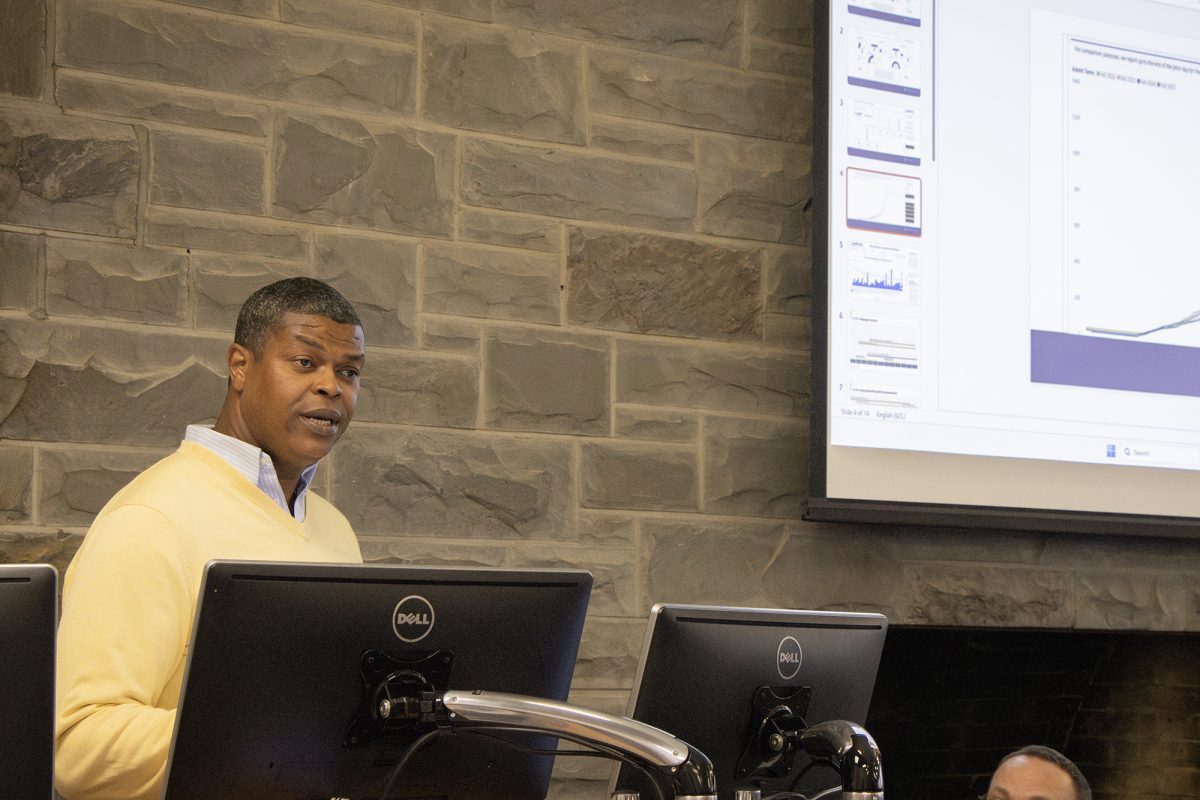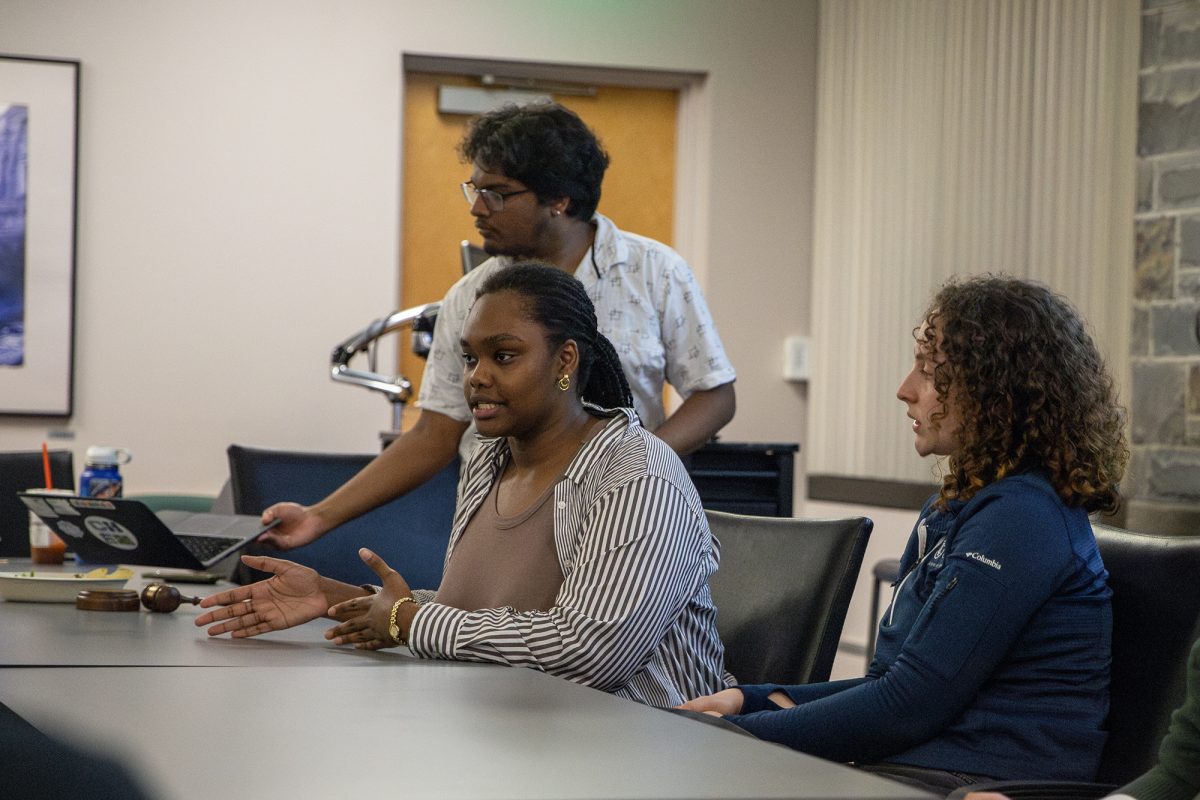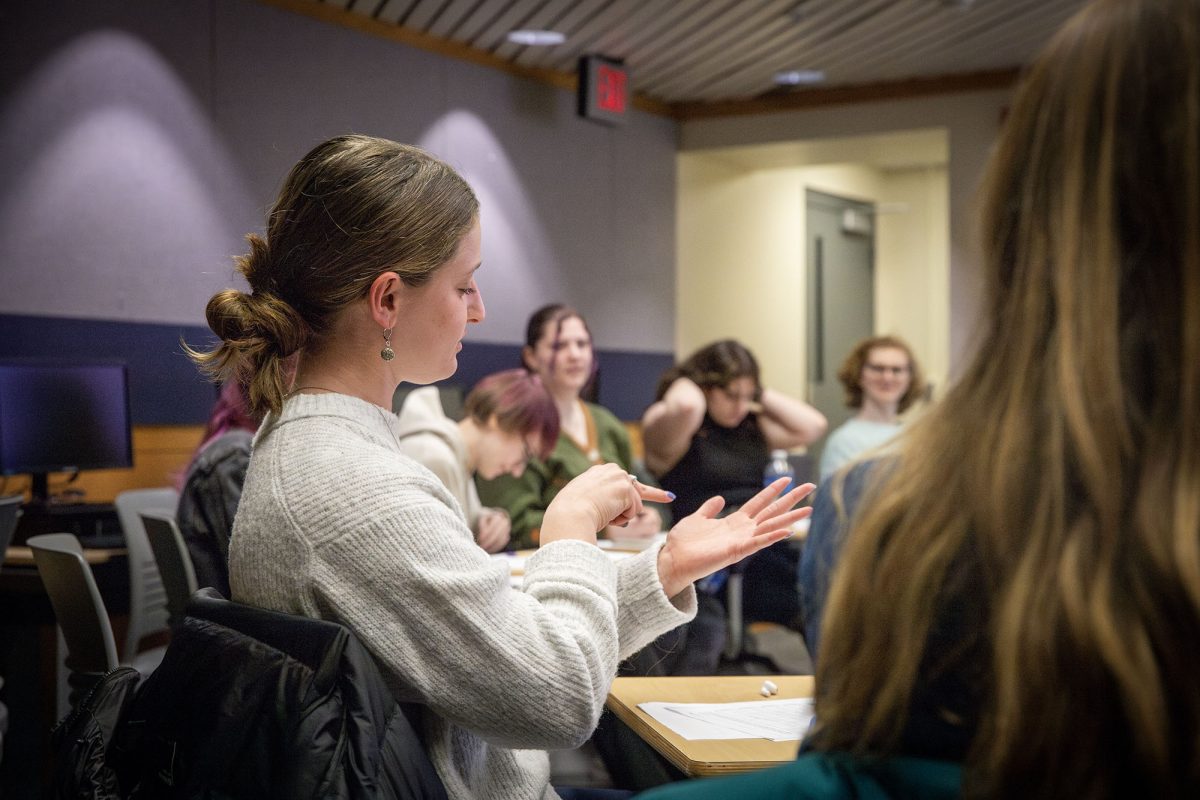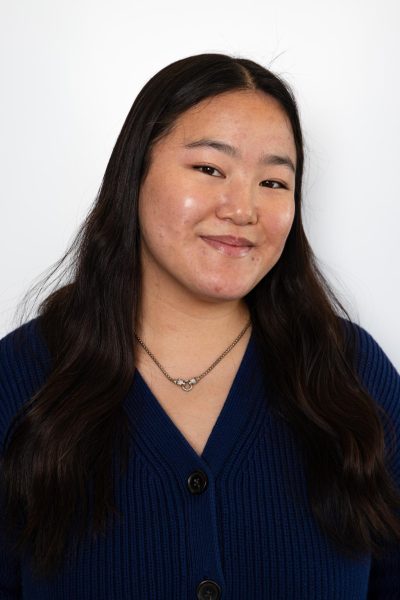The Departments of History and Politics at Ithaca College co-sponsored the discussion event “Understanding Events in Israel and Palestine: A Historical Perspective,” Nov. 30 in Williams Hall. The featured speaker was Ross Brann, professor in the Department of Near Eastern Studies at Cornell University.
Brann was introduced by Jonathan Ablard, professor in the Department of History at Ithaca College, to a filled lecture hall consisting mostly of students. At one point, all of the seats and isles were full of attendees.The event was intended to create an environment that would facilitate thought and a productive conversation, and because of that, Albard stated rules to help ensure the goal.
Ablard asked for no audio and video recording and urged attendees to stay for the entirety of the event. He stressed the importance of a question and answer session at an event like this and said student questions and comments would be prioritized.
The event was structured into two main parts. First, a teleological historical summary by Brann of the conflict between Israel and Palestine leading up to Hamas’ attack on Oct. 7. He discussed the ways Israel and Palestine have been divided territorially in the past.
Brann used maps to illustrate the information about the territories and borders of Israel and Palestine from the very beginning, going as far back as the Ottoman Empire and up to present day. Brann talked about the United Nations’ involvement in the conflict in 1947, after Great Britain decided to leave the land, and why the borders drawn during that time looked as chaotic as they did.
“This was their solution to the problem of two peoples wanting their independence in the same territory,” Brann said. “By drawing a map with two things in mind. One: draw the map where most of the Jews live — where they will constitute a majority — and then places in the land where Palestinian Arabs already are a very clear majority. Two: make sure that some of the best agricultural land lies in each proposed state.”
Brann discussed the changing of rule over the Gaza strip since World War II. He said Gaza was occupied militarily by Egypt from 1949 to 1967, then it was occupied by Israel until Israel’s withdrawal from Gaza in 2005, and since 2006, Hamas has governed over the Gaza strip.
Brann then explained how Hamas has gained Palestinian societal support, even though it is a radical group.
“A minority of Palestinians had been accepting of [Hamas’ rule],” Brann said. “But an increasingly radicalized segment of Palestinian society, desperate to find some way out of the circumstances of Israel’s occupation, hears Hamas’s 1988 charter. Hamas’s enemies — both Palestinian and Israeli — point to this charter as profoundly antisemetic. Hamas’s military leaders, during the early phases of this war, use language that is redolent with a kind of racist vocabulary.”
Sophomore Jo Dull attended the talk and said they were glad to see the college host an event to facilitate this type of discourse and discussion regarding the conflict between Israel and Palestine.
“It’s been upsetting that the school hasn’t made much of a statement or anything,” Dull said. [When I saw the poster] for this event I was really excited to see that the school was actually bringing someone to talk about this. And more than just about protecting the Jewish community on campus, which I still think is very important. But I also think it was slightly ignoring the larger international problem at hand. … It was good to have a speaker here who was clearly educated and could present facts unbiasedly.”
Brann explained the cause of the support growth in Israeli society for a radical solution to the conflict, with parts of society who would not agree with this in the abstract, but are giving approval because of the events of Oct. 7.
“The wrath that this has unleashed in some parts of Israeli society, in particular parts represented by a majority in this Israeli government, is using racist language,” Brann said. “They’re saying that they abrogate to themselves the right to reduce the entirety of the Gaza strip, and all the people living in it to rubble.”
Brann concluded his talk by insisting that the Israel-Palestine conflict cannot be solved through military action.
“Neither is going anywhere,” Brann said. “No matter what happens, these two peoples are destined to live together. It’s only a question of what political formula they can come to that might make a lot of people unhappy but at least everyone could live with.”
During the Q&A portion of the event, Brann was asked how culpable he thinks the United States is in this conflict.
“That’s a loaded question,” Brann said. “The United States has been Israel’s shield from international pressure about its treatment of Palestinians in Gaza. It rebukes Israel, but there haven’t been any consequences. So in that perspective, the answer is of course. Because we do have a lot of sway. … It’s also the largest foreign affairs allocation in the U.S. budget. … But none of that money ever leaves the United States, it’s a subsidy for the arms industry. I’ll let your politics work out what you think about that.”
After the event, sophomore Kamryn Struse said she respected how objective the presentation from Brann was.
“I appreciated how it was really an unbiased perspective, it was very historical,” Struse said. “[Brann] didn’t take one side over the other and brought up examples from both sides to really make his point.”















